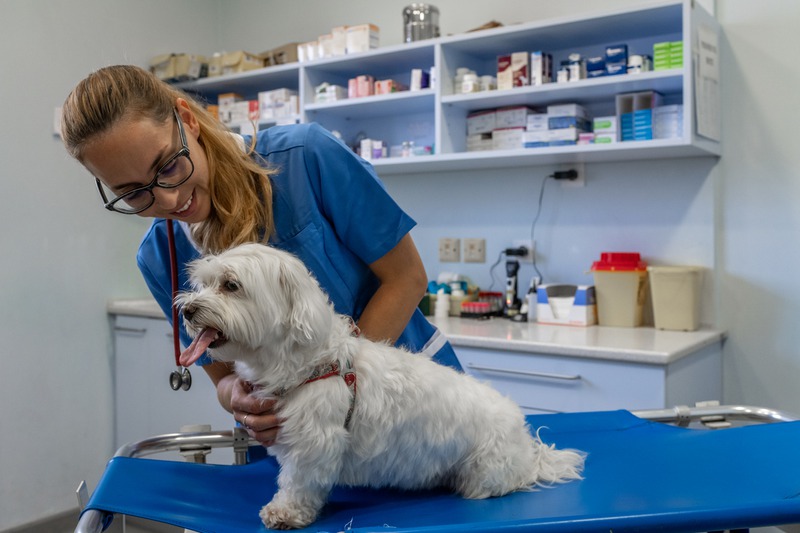When you’re cuddling with your furry buddy, a yawn suddenly reveals a less-than-pearly-white set of teeth and, even worse, an off-putting breath. It’s not just a cosmetic issue; it’s a red flag waving at you about your pet’s dental health. As pet parents, we’re often meticulous with vet visits and vaccinations, but dental care? It can easily slip through the cracks. Today, discuss why those chompers deserve more attention and how they can impact your pet’s overall well-being.
Why Your Pet’s Teeth Matter So Much
Those sharp canines and rugged molars do more than help your pet crunch on their favorite kibble. Oral health is a mirror reflecting the state of your pet’s body. Poor dental hygiene can lead to plaque buildup, which may escalate to tartar, causing gum disease, tooth decay, and even tooth loss. But the concerns are more profound than the gums. Dental issues can serve as a highway for bacteria to enter the bloodstream, leading to systemic problems, including heart, liver, and kidney disease. So, maintaining a shiny set of teeth for your pet is seriously savvy preventive care.
The Connection Between Dental Disease and General Health in Pets
Dental disease is not merely a localized issue confined to your pet’s mouth. It has far-reaching implications that can impact their overall health. Let’s break down how this silent ailment can affect your furry companion:
-
Pervasive Periodontal Problems: Periodontal disease is rampant among pets, particularly as they grow older.
-
Insidious Bacteria: Bacteria that collect along the gumline incite inflammation, known as gingivitis. Without intervention, this can escalate to periodontitis, destroying vital tooth-supporting structures.
-
Systemic Spread: The mouth serves as a gateway. Bacteria from dental disease can embark on a journey through the bloodstream, reaching and potentially wreaking havoc in organs like the heart, liver, and kidneys.
It’s clear that maintaining your pet’s dental hygiene is an investment in their systemic health, reducing the risk of consequential diseases triggered by poor oral care.
Case in Point: Systemic Health Risks
Here’s the kicker: those oral bacteria aren’t content with causing bad breath. When they enter the bloodstream, they can affect distant organs. For instance, your pal’s kidneys filter out these unwanted guests, which can place extra strain on them. In the heart, bacteria may lead to endocarditis, an infection of the heart valves. And the liver, which processes toxins, might become inflamed due to the bacterial invasion. Who knew that something as seemingly mundane as dental health could wield such influence over a pet’s vital systems?
Spotting the Signs of Dental Disease in Pets
Before panic ensues, remember that early detection can make a vast difference. Monitor for symptoms like bad breath, difficulty eating, pawing at the mouth, and bleeding gums—also, lookout for a reluctance to chew or drop food. But don’t wait for these signs to book a visit to the vet, as some pets are masters of disguise when it comes to pain or discomfort.
Prevention: A Stitch in Time Saves Nine
How do we avoid the slippery slope of dental disease? Prevention is worth a pound of cure, they say. Start with regular teeth brushing using pet-safe toothpaste. Invest in dental-friendly toys and treats that help scrape plaque off those pearly whites. And most importantly, never skip those routine dog exams. These check-ups are goldmines for early detection and management of dental issues. By keeping an eye on your dog’s oral health, you’re safeguarding their overall health, too.
Annual Health Checks: Not Just a Box-Ticking Exercise
Now, let’s talk about those annual visits to the vet. For our feline friends, a cat annual check up is an unsung hero in preventive health care. It’s not just about updating vaccinations—it’s a complete health audit that should include a dental assessment. Early detection of dental trouble in cats can save your little hunter a heap of future health problems and discomfort.
Professional Dental Care: It’s Worth It
Home care is invaluable, but sometimes, your pet needs a professional touch. That’s when the skills of a vet come into play. Professional dental cleanings involve removing tartar from above and below the gum line and checking for any signs of dental disease. In some areas, you might find specific pet dental specialists. For example, if you’re in California, seeking dog dental care services in Chino Hills, CA, could be the stepping stone to better health for your canine buddy.
Diet: The Role of Good Nutrition in Dental Health
What goes into your pet’s bowl is just as crucial for their teeth as their tummy. Dry food can help reduce plaque buildup; some diets are specifically formulated for dental health. Consult your vet about the best options for your pet’s oral and overall health.
Home Dental Care: Tips and Tricks
So you’re ready to up your pet’s dental game at home? Here are a few pointers:
-
Introduce tooth brushing early and make it a routine.
-
Use pet-safe toothpaste (never human, as it can be toxic to pets).
-
Try dental toys and chews designed to clean teeth as your pet plays.
-
Regularly inspect your pet’s mouth for any signs of disease.
When Dental Issues Go Unchecked: A Harsh Reality
Ignoring dental health can lead to dire consequences. Advanced periodontal disease is not only painful for your pet but can be costly to treat. Moreover, chronic dental disease can shorten a pet’s life. It’s hard-hitting but accurate; something as manageable as oral care can significantly shape your pet’s health landscape.
Working Together with Your Vet
Creating a dental care plan is a team effort. Work with your vet to understand the best approach. They’ll give you the scoop on home care and let you know when professional help is necessary. Plus, they can guide nutrition and overall health practices that contribute to a vibrant, healthy mouth.
Final Thoughts
Pets are more than friends; they rely on us for a happy, healthy life, which includes dental care. Neglecting their dental health can cause serious issues, not just bad breath or tooth loss. Good dental hygiene is vital for your pet’s overall well-being. Regular teeth cleaning at home or vet visits are critical to their health. Taking care of your pet’s teeth helps prevent further health problems and is an act of love that contributes to their happiness.




